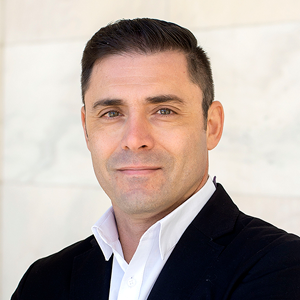Growing up we had a pond in our backyard. Ponds are enchanting when you are a young boy —especially at the start of the Northeastern winter. A boy’s courage ascends with each step across the ice-covered water — standing on the deep testifies to a young boy’s bravery. Yet the sound of cracking quickly reveals how fragile they both are.
The world sounds a lot like that cracking ice lately. It’s been a while since we all thought about the possibility of World War III (unless Red Dawn was on FX— still a great movie!) But the prolonged war in Europe and the emergence of swastikas at home bring old textbook images to life. Reports of airstrikes, iron domes, threats of expanding wars, domestic terror, foreign threats, natural disasters, and economic recession all animate our apocalyptic vision. Moreover, we are not used to worrying about Wednesday night bowling, attending church or synagogue, or publicly sharing our deeply held moral beliefs. The ground outside of Eden is brittle, and so is the human heart.
Thanks to our veterans, most of us have been able to sing about the home of the brave without much reflection on what it means to be courageous. But the world seems different right now. Mental health experts warn that worldwide unrest and the barrage of negative information profoundly affect our health and well-being. We live in a cultural moment that demands psychological, emotional, and moral courage. So, what does it look like to be a person of courage in uncertain times?
Medieval Wisdom
Thomas Aquinas, the medieval Catholic theologian, thought deeply about courage. Aquinas noticed that humans most often respond to fear in two extremes: (1) Humans tend to withdraw from the source of fear (i.e., flight) or (2) humans attack at the source of fear (i.e., fight). Aquinas logically discerned that endurance lies between the extremes of fight and flight. Aquinas posited that the virtue of courage is chiefly expressed through acts of endurance. Thus, to be genuinely courageous, one must learn to endure unsettling and frightening circumstances (for to run away is cowardice, and to attack rashly is foolhardy.)
Moreover, the theologian also noticed that courage is cultivated when one nurtures certain habits. Aquinas argued that a courageous person must bridle their inclination toward fight or flight by practicing small habits of endurance. Aquinas rightly saw that courage will not self-generate at the moment of crisis. Instead, courage must be fostered by practicing daily habits of endurance.
So, what simple daily habits might foster endurance, help us curb fear, and cultivate courage? Here are some suggestions:
5 Practical Tips
Habit 1: Listen or read someone you disagree with and don’t respond. Our natural fight reflex moves us toward correction, debate, or argument. And our flight muscles tempt us to shut down and tune out. But the Bible’s command to “be quick to listen and slow to speak” is not only good etiquette, it also calls us to practice the habit of endurance, which builds the virtue of courage.
Habit 2: Take a cold shower a few times a week. This may sound ridiculous, but if small habits of endurance grow into courage, then persevering through physical discomfort can strengthen mental resolve. So much of our current anxiety is propelled by an undisciplined thought life —physical endurance helps to cultivate mental courage.
Habit 3: Listen to a small child tell a story. Children ramble! It takes endurance to listen to a child finish a story. Whereas disagreement incites our fight reflexes, actively listening to a child’s rambling arouses flight reflex — get to the point — ok sweetheart — that’s enough! Actively listening to a child’s disjointed and verbose story fosters endurance and offers encouragement (the prefix “en” in encouragement carries with it the idea of “within courage.”)
Habit 4: Stay in your local church. Church commitment is on the decline across the West. Some studies report that the average church member attends services 2 out of 4 Sundays a month and remains in the same congregation for an average of 6.6 years. Church life can be difficult, but unless there is flagrant, unrepentant sin, endure with one another. Long-term commitment to a local church is not only loving to others but fosters courage in oneself.
Habit 5: Finish a book! According to a 2022 Gallup poll, Americans are reading the fewest books since 1990. No doubt, technology and broader access to information are influencing reading patterns. But completing a book is an act of discipline, patience, and endurance. Setting a reading goal not only strengthens the mind but also contains the properties required for the virtue of courage.
The United States has been relatively safe compared to the rest of the world, and I pray it continues. But as we see the frightening rise of anti-semitism on our news feeds and hear reports of wars and rumors of wars, it feels like the ice is cracking. While our natural reflex is to withdraw or attack, now is a moment to pray and practice habits of endurance. We may never know when we will be called to take on greater acts of courage in these uncertain times.










One Reply to “Wars and Rumors of Wars: Cultivating Courageous Habits”
Thanks, Dan! 💖